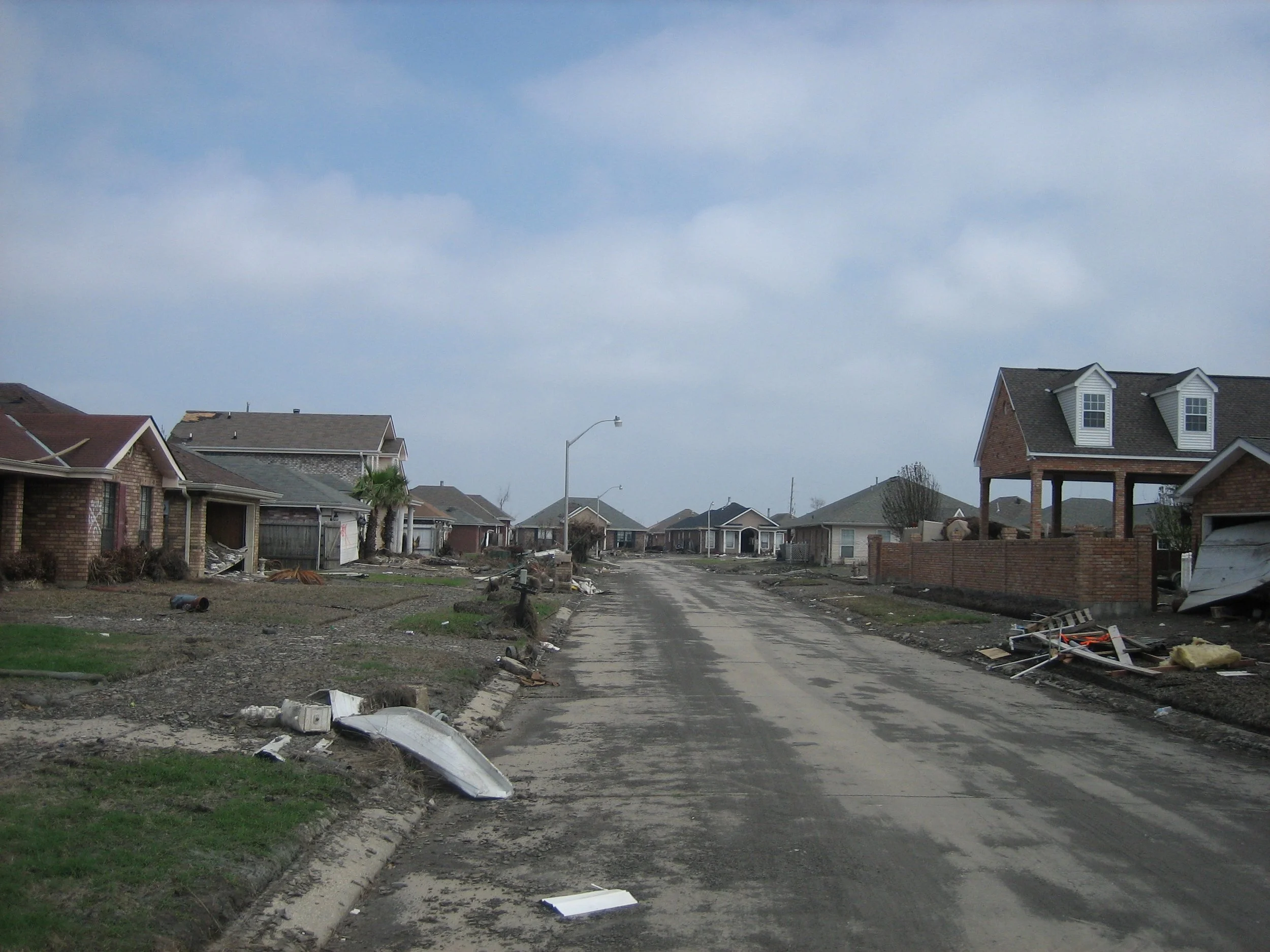Katrina at 20: Books
It has been twenty years since Hurricane Katrina struck New Orleans and the Mississippi Gulf Coast. I’ve read a lot of books about the disaster, and want to make some brief recommendations for anyone who wants to learn more about what happened.
The Best
There are many interesting books about Hurricane Katrina, but for me, the best one is Chris Rose’s 1 Dead in Attic, a collection of newspaper columns Rose wrote for the New Orleans Times-Picayune after the storm. I remember reading almost all of the columns when they came out in 2005-06, and the rawness, the sadness, and the quirky energy from this book are unlike disaster story I have ever read. Almost all the other books about Katrina fit into certain categories. 1 Dead in Attic has no category. It sits by itself.
I thought it was an unfortunate that 1 Dead in Attic was only the runner up for the Pulitzer Prize in Commentary the next year — the winner was Nicholas Kristof, a New York Times reporter. Now, I have nothing against Kristof and the work he did. He won for a series of columns about the genocide in Darfur, which was a terrible tragedy, but there were many people writing that year about Darfur. 1 Dead in Attic was a unique contribution to American journalism. I doubt we will see anything like it again.
Non-fiction
The Great Deluge by Douglas Brinkley. Brinkley was a professor at Tulane University who left the city around the time of the storm for another teaching position in Texas. This book was written very soon after Katrina, and for this reason has an intense energy and even anger to it. But because the story ends just weeks after the storm, it is feels incomplete. Still, it is the best blow-by-blow summary of what happened in the weeks following August 29, 2005.
The Storm by Ivor Van Heerden. Van Heerden was a professor at LSU specializing in hydrology, the study of floods. In this book Van Heerden destroys the Army Corps of Engineers and the U.S. and state, and local governments for flood management failures both before and after Katrina. First, they built a woefully inadequate levee system. Then after the storm, they built another inadequate system. In 2010, Van Heerden was fired from LSU for telling truths that risked political retribution. This book is absolutely the truth, and LSU should be ashamed of itself for firing him.
Down in New Orleans: Reflections from a Drowning City by Billy Sothern. Sothern was a lawyer who documented the horrible miscarriages of justice after Katrina. A transplant but a true New Orleanian at heart, Sothern’s story is one of the most entertaining and insightful accounts of the years after the storm.
Literary
Salvage the Bones by Jesmyn Ward. Easily the best fiction written about Katrina. This book takes place not in New Orleans but on the Mississippi Gulf Coast, which also suffered a direct hit. This book stands on its own as a fine work of literature, even for readers without a prior knowledge of Katrina. In the novel, the hurricane washes away the life of a Gulf Coast Black family, telling a compelling story about the kind of people who were seen on TV at the Superdome and then forgotten about. The storm is not named, which makes the themes universal for all disaster victims. Considering how few works of fiction are about real natural disasters, Salvage the Bones a must-read.
The Yellow House by Sarah Broom. This book, only partly about Katrina, mainly tells the story of racial tension and economic class divisions in Eastern New Orleans. At times it departs very far from the Katrina story, but in the end it returns home. This book was interesting to me because I practiced medicine for four years in New Orleans East. Many of the places and cultural aspects of NOLA East are familiar to me.
Other Great New Orleans Reading
Satchmo: My Life in New Orleans by Louis Armstrong. The finest memoir ever written by a jazz musician. It isn’t even close. Armstrong writes about his teenage years in New Orleans, when jazz music was forming right before his eyes. Some of the musicians mentioned in this book would have been lost to history if Armstrong had not known them and credited them for their contributions to the birth of jazz.
The World that Made New Orleans by Ned Sublette. A history of New Orleans, but also of the Caribbean and Gulf of Mexico islands that helped bring the city into being. Especially interesting are the sections on Cuba and Haiti, which were, to my surprise, very closely linked to New Orleans until the Americans took over and locked them out. This account sets the cultural stage for jazz, and for Katrina. Sublette also has a book about Katrina called The Year After the Flood, which I have not read yet, but plan to.
The Joy of Y’at Catholicism * by Earl Higgins. New Orleans is, more than most American cities, a Catholic city. Its history and culture are hard to understand without viewing it through a Catholic lens. This account is very informal and lighthearted, but I can’t think of a book that pulls together so many strands of New Orleans Catholic history into such an accessible format. For the outsider, it offers explanations for many of the New Orleans traditions that prompt visitors to ask, “Why do they do that?”
* “Y’at” refers to a tendency of native New Orleanians to say, “Where y’at?” instead of “How are you doing?”


